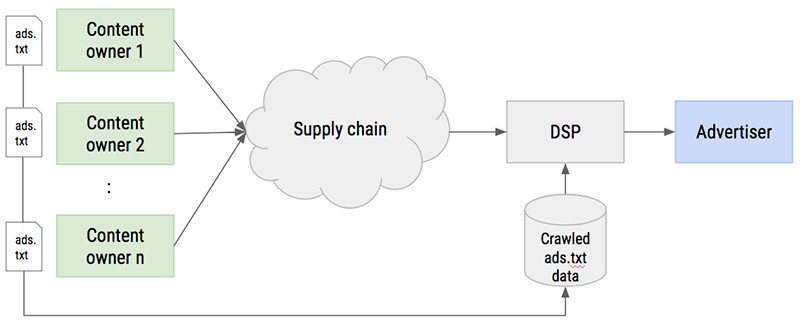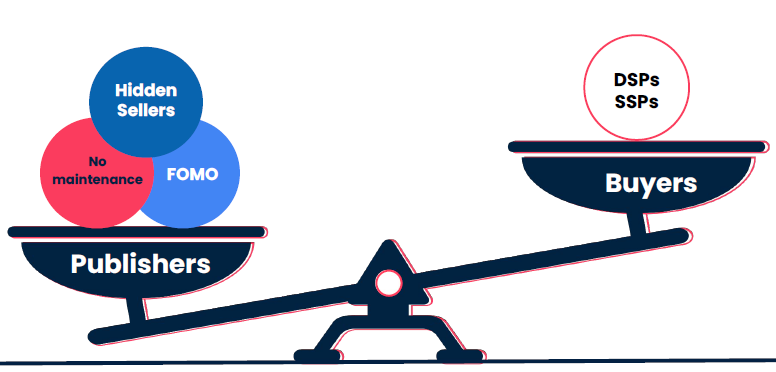
If you’re running programmatic advertising, and almost everyone is, you have an ads.txt file in place on your website and it is likely something you update at least from time to time.
But do you really understand the mechanics behind the file and what you as a publisher should be doing to maintain the quality of advertising on your site?
Ads.txt stands for Authorized Digital Sellers (yup it’s an acronym) and it is supposed to be a simple, flexible, and secure method that publishers and distributors can use to publicly declare the companies they authorize to sell their digital inventory.
Here are the basics:
- Ads.txt is a publicly accessible record of authorized digital sellers for publisher inventory that programmatic buyers can index and reference.
- Participating publishers must post their list of authorized sellers to their domain.
- Programmatic buyers can then crawl the web for publisher ads.txt files to create a list of authorized sellers for each participating publisher.
- Then programmatic buyers can create a filter to match their ads.txt list against the data provided in the OpenRTB bid request.
But if you don’t understand how it works, you allow yourself to be bullied by buyers who demand additions to your ads.txt file, and if you don’t maintain your file, your ads.txt may not be doing the job it was designed to do.
In their recent Spotlight Session at PubForum San Diego, Lior Shvo, Managing Director at Sellers.guide by Primis, took some time to educate us on the current challenges publishers face with ads.txt and how Sellers.guide, a free tool, from Primis can help.
Publishers that don’t truly understand, how it works, don’t evaluate addition requests by buyers, and/or don’t take the time to maintain the file, could be facing invalid ads.txt entries. Invalid entries can be caused by being inaccurate or they were once, but are now no longer active. Invalid entries can result in:
- Site latency
- Clickjacking
- Unsuitable ads
- Domain spoofing
- Mobile redirects
- Throttling
- Inefficient supply paths
- And ultimately the loss of revenue.
Primis saw this problem happening with their clients and set out to solve this problem. Out of that initiative Sellers.guide was born.
Sellers.guide using its domain analysis tool cross-references your ads.txt file to sellers.json files. The tool provides you with an overall score and an analysis of your score in twelve different categories. From there it provides a wizard to help walk you through each of the areas, providing benchmark data and recommendations to improve your score, but more importantly the quality of your ads.txt file.
These are steps that a publisher can take on their own, but it is a manual time-intensive process. Sellers.guide also provides The Wizard, a free tool that helps publishers take their analysis into action, and in a few steps, create a new, clean ads.txt file that will be sent to their email. This automates the updating process, taking it from days to minutes.
How it works:
- The clean-up process is organized according to various flags identified during the domain’s analysis.
- If the publisher chooses to clean up their files, the Wizard will take them through a step-by-step process that enables them to simply click on the lines that need to be fixed.
- After cleaning up, the publisher enters an email address, where the updated ads.txt file will be sent.
- Publishers will be able to upload the new ads.txt file as is to the root domain.
Publishers who clean their ads.txt files will automatically regain control over who has access to their inventory, ensuring that they are represented correctly to buyers while preventing ad fraud.
The Sellers.guide Analysis Tool and The Wizard are free to use for all publishers! Check it out at Sellers.guide.

